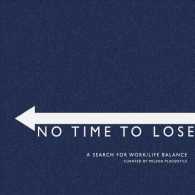- ホーム
- > 洋書
- > 英文書
- > Nature / Ecology
Full Description
Sustainability Assessment is an increasingly important tool for informing planning and development decisions across the globe. Required by law in some countries, strongly recommended in others, a comprehensive analysis of why Sustainability Assessment is needed and clarification of the value-laden and political nature of assessments is long overdue.
Currently the writing on the subject is limited and comprises, for the most part, guidance documents and completed assessments. This book overcomes these shortcomings by simultaneously providing the knowledge, inspiration and range of assessment tools in decision-making students require to tackle Sustainability Assessment challenges nested within wide-ranging values and sustainability-grounded evidence.
The collection details the current state-of-the art in relation to Sustainability Assessment theory and practice, and considers the pluralistic nature of the tool and the implications for achieving sustainable decision-making. The contributors set out the context for Sustainability Assessment and then outline some contested issues which can affect interpretations of whether the decision tool has been effective. Current practice worldwide is assessed against a consistent framework and then solutions to some of the inherent weaknesses and causes of conflict in relation to the perceived sustainability of outcomes are put forward.
The book is unique in setting out state-of-the-art in terms of Sustainability Assessment practice by focusing on those countries with developing experience. It also covers emerging factors influencing effectiveness of decision-making tools and evaluates how they affect the performance of Sustainability Assessment. Written by authors among the leading university academics teaching impact assessment courses in the most acclaimed universities worldwide operating in this field, it is ideally suited for the growing numbers of courses in impact assessment education and training.
Contents
Preface Part 1: Introduction 1. Why Sustainability Assessment? 2. The Changing Theory of Impact Assessment Part 2: Sustainability Assessment Pluralism 3. Challenges in Determining the Effectiveness of Sustainability Assessment 4. Contested Time Horizons 5. Contested Spatiality: Geographical Scale in Sustainability Assessment 6. Legal Pluralism - Notions of Standing and Legal Process Constraining Assessment 7. Pluralism in Practice Part 3: Sustainability Assessment Practice 8. Framework for Comparing and Evaluating Sustainability Assessment Practice 9. Sustainability Assessment in England 10. Sustainability Assessment in Western Australia 11. Sustainability Assessment in Canada 12. Sustainability Assessment in South Africa Part 4: Solutions? 13. Better Engagement 14. Better Learning 15. Designing an Effective Sustainability Assessment Process 16. Integrating Sustainability Assessment into Planning 17. Conclusions








